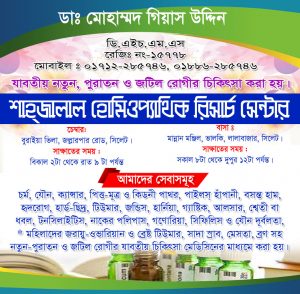CNBangla Desk :: The study is about finding the right balance between concentration, comprehension, retention and rest. And, just as any task that taxes your energy – be it physical or mental – is often just as difficult to get started as engaging yourself.
But do not be disappointed! If you just need to study for an exam or want to learn how to study in the long run and retain valuable information for the whole term, we’ve got you hooked. We’ll explain how to study better, to help you rebuild your daily and long-term study habits and to give you the best study tips to manage your time and keep you focused as you study.
Table of Content
Take a Break from Social Media
Find a Peaceful Spot to Study
Make Use of Your Extra Time Wisely
You don’t need ONE study space
Track more than HW in your school planner
Start small
School supplies (alone) don’t make you organized
Get into a routine
Learn how to create a distraction-free zone
Get real
Use class time wisely
Look over your notes each night to make sure you’ve got it
Don’t let a bad grade keep you down
Make a friend in every class
Practice Good Study Hygiene
Rewrite or Rephrase the Material in Your Own Words
Teach the Material to Someone Else
Quiz Yourself with Flashcards
Make Your Own Diagrams, Formula Sheets, and Charts
Give Yourself Rewards
Making the Most of Your Study Time
Study New Material within 24 Hours
Know When to Move On
Get Enough Sleep
Pack Your Gear the Night before the Test
Eat Something
Take a Walk
Take a Break from Social Media
If you’re going to start that paper tomorrow, the first thing you need to do is turn off your phone’s notification or put it in a drawer away from your perspective.
Constantly checking your social media accounts every time a notification pops up will prevent you from simply ending or even starting. This will disrupt your thoughts and make it difficult for you to recall the ideas you already had.
If you are worried about excluding the virtual world, you need to understand that you can always reconnect with your social media friends with just one tap. But once you fail at it, it will not be easy to talk to your teacher.
Find a Peaceful Spot to Study
Create a study-friendly environment by finding a place inside your home where you won’t hear your dad’s football game competition and your mom’s loud phone conversation.
By doing this, you will not be distracted and you will find it easier to focus your handiwork. You will better understand the book you are reading or memorize the terms for your upcoming exam faster.
If you can’t find a quiet corner in the house, try going to a coffee shop or park near you to change the scenery. Who knows, you might even get inspiration from observing another person’s actions draw if it doesn’t appeal to you, the local library is still one of the best options.
Make Use of Your Extra Time Wisely
If a teacher dismisses you early because of a faculty meeting or announces a study day for the whole class, use that time to browse your notes and review some topics that you find difficult to understand. You might need to go to the library and finish your schoolwork while hanging tight for your next class.
It can create the impression that you are a highly educated person, but who cares? You get plenty of free time after class unlike your classmates who still have to take their activities home.
Imagine for a second you were transposed into the karmic driven world of Earl, watching Netflix with your family and updating your Facebook status. Who is wise now?
You don’t need ONE study space
A well-stocked desk in a quiet place at home is key, but sometimes you have different needs. Moving to a coffee shop, library, park, or even a kitchen table will turn you into a scene that can persuade your brain to retain better information.
Track more than HW in your school planner
Having a calendar helps you plan ahead – but you can do more than just do your homework assignments! Make sure you’re also identifying your extroverts, actions and social commitments. (Tests, band rehearsals, awesome games, SAT dates, half-days and holidays are just a few examples of reminders for your planner)
Start small
If you get a large assignment like a research paper, be inspired to complete a portion of this project every few days. Write a paragraph every night. Or, do 5 algebra problems from your problem set at once and then take a break.
School supplies (alone) don’t make you organized
Bring a system and keep it going. Do you have a large binder for all your classes, including color-coded tabs? Or on the other hand do you want to save separate scratch pad and an organizer for freebees? Keep the system simple. If it’s too fancy or complicated, you’re less likely to have it every day.
Get into a routine
When do you have time to do your homework every day? Find the right time of day that works best for you (it can change day by day depending on your schedule!) And plan to hit the books.
Learn how to create a distraction-free zone
A survey of workplace disruptions found that workers working with pre-work disruptions took an average of 25 minutes to return. Try turning off your phone’s notifications or blocking Twitter (temporarily) on your computer so you can concentrate on handy chores.
Get real
When you look at homework when you want to finish work tonight, be realistic about how long things actually take. It will take an hour to read the history chapter and another 30 minutes to write a response to help you plan how you will spend your time.
Use class time wisely
Your teacher has finished the lecture, but you still have 10 minutes left in class? Jump into your chemistry homework while it is still fresh in your mind. Or use the time to ask your teacher about a vague idea for the first time.
Look over your notes each night to make sure you’ve got it
Fill in the details, edit the parts that don’t make sense, and star or highlight the bits of information you know are the most important. Communicating with your notes will assist you with recollecting that them. You can likewise utilize schoolwork help to get your inquiries addressed every minute of every day.
Don’t let a bad grade keep you down
You don’t have to drop your GPA at the beginning of the semester. Check your grades online regularly and take proactive steps to find a teacher you need.
Make a friend in every class
If you have homework questions or need to miss classes (and do the same for them!) Look for a few people you can contact with each of your classes. Then when it comes time to study for the exam, you will already have a study group.
Practice Good Study Hygiene
Good study hygiene is about maintaining a clear separation between work and rest. It allows you to concentrate on the things you need to do while reducing stress and anxiety throughout your life.
We’ve already talked about having a dedicated study space, but now we should make sure to keep those areas as “healthy” as possible. How? Here are some basic rules for setting up your study environment:
Make Sure That You DON’T Study In or On Your Bed
Studying in sleeping areas is much defined as not maintaining a clear separation between work and rest and in most cases increases the levels of stress and insomnia. As a result, it can reduce your concentration and ability to study in the long run.
By blurring the line between study time and free-time, you will simply create spillover stress for yourself and get stuck in a cyclical effect of productivity and anxiety. So place your research position on a desk, a table, or even a couch, until you are in your own bed.
Keep Tantalizing Distractions Far Away
Easy to let our own phones check, get up and hunt for snacks, or catch ourselves in search of irrelevant information on Wikipedia There are endless frustrations around us that try to lure us away from our handiwork and tempt us to succumb to a horrible time sucking. Can The best way to avoid such scattering is to remove the temptation completely.
Make a snack for yourself before you start studying so that you are not tempted to get up. Keep your phone away and turn off your WiFi on your computer if you can. Tell yourself that you won’t be able to check out anything you’ve confused until your allotted study time is over. You may have to wait until the end of your study period to confuse what you have done.
Keep Yourself Comfortable, Hydrated, and Fed
Taking care of your body’s basic needs during your study will not only help improve your mood and concentration, but it will also help you avoid the need to get up (and consequently lose your focus) while studying.
So make sure you take water, a jacket, a snack, coffee or whatever you need for your studies so that you are comfortable, focused and ready to learn.
Varying Your Study Methods
There are different ways to study and none is better than the other. In fact, diversifying your study strategies and using a combination of multiple different study methods will help you learn and store your information better than just sticking to one.
A combination of different study methods and different strategies to prevent mental fatigue and keep your brain engaged. And we’ll walk you through some of the best study strategies here.
Rewrite or Rephrase the Material in Your Own Words
It can be easy to get lost in a textbook and look back at a page, just to realize that you don’t remember what you’re reading. Fortunately, this can be remedied.
For classes that require reading large bodies of text, such as history, English, or psychology, is sure to pause as you read. Pause at the end of a paragraph or section and say “Don’t look!” Think about what the text says. Rediscover it in your own words. Look back at the content now to make sure you have summarized the information correctly and remembered the relevant detail. Make a mental note of what you missed and then move on to the next section.
You may want to create a bulleted list of relevant information instead of just re-pressing it emotionally or loudly. Write down the essentials of the material you just read without looking back at the textbook. Then look for the book to make sure you don’t leave any information you need.
Whether you just choose the alphabet aloud or write your information down, the word re-text is an invaluable study tool. By repeating the text in your own words, you can be sure that you are actually remembering the information and exploiting its meaning, simply copying the information without really understanding or holding on to it.
Teach the Material to Someone Else
Teaching someone else is a great way to spread your thoughts and summarize the information you are studying. And almost always, teaching someone else shows you that you have learned more than the material you think!
Discover a study-friend, or a sick friend or relative, even just a sculpted or stuffed animal and explain this element to them as if they were listening for the first time. Whether the person you are teaching is real or not, in order to teach the material aloud to someone else, you need to re-frame the information in a new way and think more carefully about how all the material fits together.
And that’s the way to run your content – especially if you do it out loud. It helps you lock it in your mind more easily.
Quiz Yourself with Flashcards
Flashcards are a widely used study tool and for very good reason! Creating your own flash cards will not only help you capture information through the simple act of writing it, but will also help you put together pieces of relevant information. Flashcards are the way to go for formulas, vocabulary, equations, or links to terms and information that you must remember.
Use the Latner method to make the best use of your flashcards, so you don’t waste your time studying what you already know.
To employ this method, quiz yourself with your flashcards and separate the cards into two separate piles. In pile 1, put the cards you knew and gave the correct answer in pile 2, put the cards you didn’t know the answers.
Now go back through the cards again, but just study the cards from pile 2 (the “don’t know” pile). Separate those again after going through Pile 1 (knowing) and Pile 2 (don’t know). Repeat the process on the “don’t know” cards until more cards are added to the “know” pile.
Once all the cards have been piled up in the “Learn” pile, go through the whole pile once again to make sure you have information on all the cards.
Make Your Own Diagrams, Formula Sheets, and Charts
Reconstructing information in images can help you see and understand the material in new and different ways. For math and science classes, you may want to create flashcards as well as create a formula yourself. Flashcards will help you memorize each formula in isolation, but creating a catch-all formula sheet will give you a simple study reference tool. And creating a will only help you maintain your information through the process of writing it. The bonus is that if you’re more of a student of visuals / images, a formula sheet can help you remember your formulas by remembering how they fit into each other.
To help you remember your science processes, create your own diagrams. For example, for a biology class, draw your own house and label the elements or create your own crabs cycle figure. These pictures will usually be in your textbook, so check out the picture you provided and then create your own diagram without looking at the textbook. See how accurately you have been able to recreate it and repeat it until it’s perfect.
Sometimes creating your own graphs and diagrams means retrieving what is in your textbook from memory and sometimes it means attaching different information to yourself. Whatever the type of diagram and whatever the class, write down your information and drawing from them will help lock the element of your mind.
Give Yourself Rewards
Give yourself a small reward whenever you hit the study milestone to make the study more fun. For example, give yourself a piece of candy for every 25 flash cards for every 25 flash cards or for every three paragraphs you read (and repeat) in your textbook. Or maybe you give yourself an extra minute to watch video games or television for each page you study from your book (of course you can be released after your study time is over).
Whatever your special motivation, give yourself that small reward-encouragement to help you see through the days when studies seem to be particularly taxed.
Making the Most of Your Study Time
Whether you’re studying for a specific test or studying to familiarize yourself with class elements across the entire term, you’ll want to make the most of your allotted daily study time. After all, if time is of the essence, set aside 50-75 minutes to study and there is no point in making a commitment.
So make the best of each study session by following these study tips to retain concentration and memory.
Study New Material within 24 Hours
To maintain your knowledge of the class material throughout the term, simplify your life by reviewing any new information you learned on the same day. Reviewing new material within 24 hours will help you retain much more than what you have learned if the same information is reviewed at a later date.
So be sure to dedicate a portion of each study time to reviewing the information you learned the same day in your class.
The school bombards you with new material every day. Even when you are interested in learning the new material, it is easier for you to think of something else than to remove something new. But once the information is pushed into the back burner of your mind, your brain will usually avoid it rather than storing it in your long-term memory.
To deal with this “turning of forgetting”, practice taking notes in class and then reviewing the material the same night. This will help to lock the information in your long-term memory and serve you well in the future. Just a few minutes here and now at a later date will save you a few hours of republishing the material.
Know When to Move On
There will always be a point in your study where you have to leave the book blank. As always, life is about balance, and if you try to spend too much time on a particular subject / class / chapter, you will eventually start to see declining returns on your study effort.
At one point, your time will be better spent studying for other classes or engaging in alternative study activities. Do not stop your studies beyond your allotted time, but turn your focus to a different study topic or divert your attention to drawing diagrams instead of quizzing yourself with a flashcard. It’s not always easy to see, but you’ll be better and better at realizing when you’ve hit this stop point (and not the time to study for five minutes if you’re bored) and not keeping focus or information anymore. It might require some investment however you will arrive.
Get Enough Sleep
Absolutely, number one, the most important way to prepare yourself for the exam is to sleep the night before. Getting a good night’s sleep (and even better every night) before an exam is absolutely important.
Sleep increases focus and concentration. The effects of insomnia are a lot like the effects of alcohol. Regardless of how well you know the material, depriving you of a test sleep won’t do you any favors.
A regular sleep schedule is desirable and will work wonders for your overall health, happiness, concentration and memory. But even if you can’t sleep, just closing your eyes will help you relax. So if you find yourself wrapped up in insomnia, put yourself in more darkness and rest in your bed so that instead of shaking away for a few hours.
Pack Your Gear the Night before the Test
All you need to do is pack it the night before. This will help you relax and sleep and insure that you will not miss any important items on your way to the door in the morning.
So pack your pencils, your calculator and scratch paper. Even lay out your clothes for the next day prepare what you need so that you can reduce your stress and help you rest the night before the exam.
Eat Something
Just as with sleep, making sure to eat something on the morning of the test will help you concentrate and focus throughout the day. Better than anything, but try to eat something that will keep you full and provide you with some protein and sugar.
Whole grains, fruits and eggs are usually a good bet, but as long as you don’t get some calories in yourself (and unless it’s pure sugar and caffeine!) Can do quite a bit in a pinch.
Take a Walk
Exercising a little will help boost your mood, energy and concentration. If possible, walk ten to twenty minutes before the test or do some quick cardio exercises (such as a jumping jack)
CNBangla/Jibon








